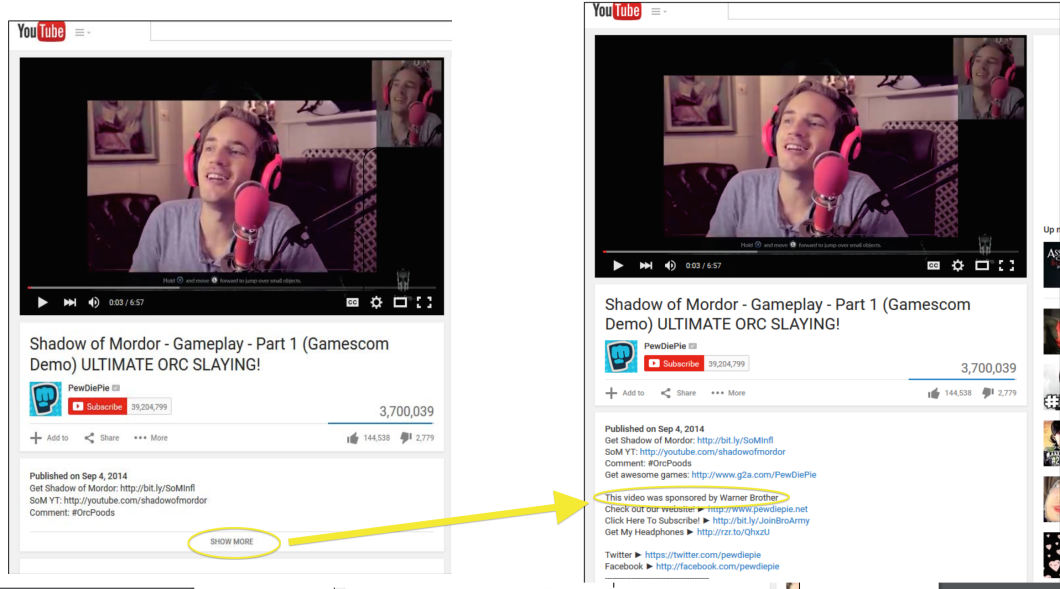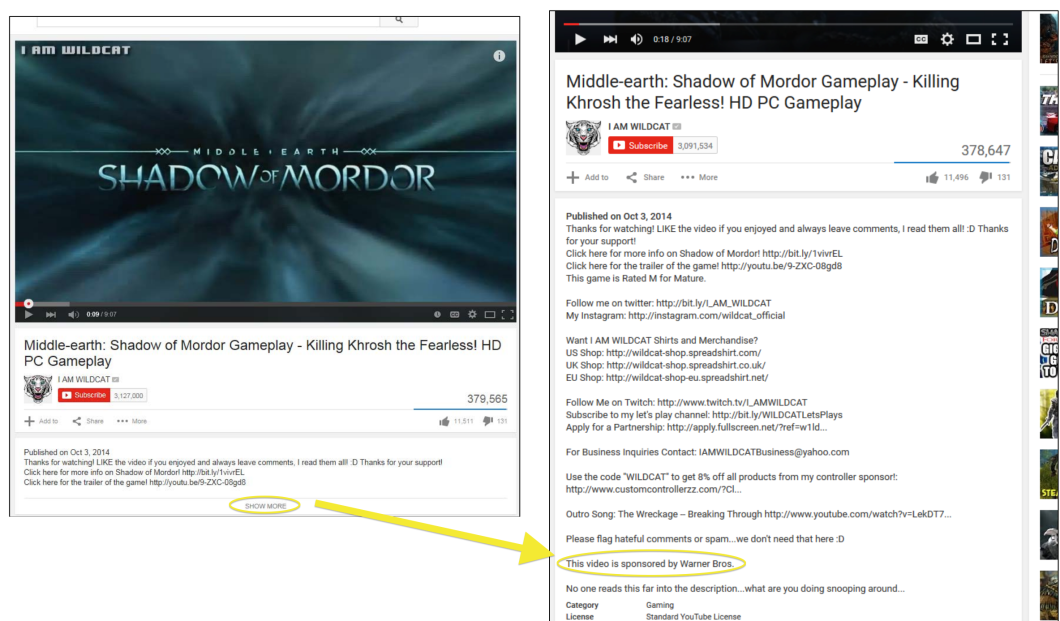Warner Bros. Paid Popular YouTubers To Post Positive Clips About Video Game
Being a “social media influencer” must be a pretty sweet deal: People send you free stuff, and pay you money just in the hopes that you’ll say nice things about their products. Problem is, those companies can get into trouble if the influencers don’t properly reveal that they were paid for their commentary.
The Federal Trade Commission announced this morning that it had settled a complaint against Warner Bros. involving allegations that the entertainment giant failed to adequately disclose that it paid social media influencers — including famous YouTuber PewDiePie — to post positive videos about its Middle Earth: Shadow of Mordor video game.
According to the FTC complaint [PDF], Warner Bros. Home Entertainment hired an ad agency to coordinate a “YouTube Influencer Campaign” for Shadow of Mordor. These influencers were given pre-release copies of the game and paid upwards of thousands of dollars each for posting videos that met the following criteria:
• Video will feature gameplay of the [Shadow of Mordor video game]
• Video will have a strong verbal call-to-action to click the link in the
description box for the viewer to go to the [game’s] website to learn more about the [game], to learn how they can register, and to learn how to play the game.
• Video will promote positive sentiment about the [game].
• Video will not show bugs or glitches that may exist.
• Video will not communicate negative sentiment about [Warner Bros.], its affiliates or the [game].
The FTC contends that these requirements make the videos “sponsored advertisements” that “do not necessarily reflect the independent experiences of the individual YouTube Influencers.” As such, the videos had to be labeled as sponsored content.
The complaint acknowledges that the YouTubers were told to disclose the sponsored nature of the videos, but the FTC says that this sponsorship was often minimized or obscured.
For example, in the PewDiePie video, the sponsorship was placed below the fold in the descriptive text for the clip:

At least that disclosure was near the fold. This second example from the FTC complaint shows a sponsorship statement so far down in the description that the only thing that comes after it is a line reading “No one reads this far into the description… what are you doing snooping around.”

When clips like these are linked to and previewed on Twitter or Facebook, the sponsorship disclosures are not revealed to readers, who will only know that they are watching ads if they click through to the YouTube link and then read the full descriptions.
While these disclosures may have been far down on the page, at least they indicated that the game’s studio was the company sponsoring the video.
One video, which received more than 300,000 views, only states “This has been one of my favorite sponsored games, so thanks that I could play it for free!!”
The influencer campaign ultimately included around 30 YouTube videos, which have been viewed more than 5.5. million times, according to the FTC.
As part of the FTC settlement [PDF], Warner Bros. neither admits nor denies any of the violations alleged in the complaint. The company also avoids any financial penalty.
However, the company has agreed to not misrepresent that any gameplay videos disseminated as part of a marketing campaign are independent opinions. Warner Bros. must also clearly and conspicuously disclose any material connection between it and any influencer or endorser promoting its products.
Warner Bros. has agreed to, going forward, take steps to educate these influencers about proper sponsorship disclosures, and monitor any influencer videos for compliance. If a video does not comply with FTC standards, Warner Bros. would be responsible for terminating or withholding payment from the influencers and/or ad agencies involved.
Want more consumer news? Visit our parent organization, Consumer Reports, for the latest on scams, recalls, and other consumer issues.

